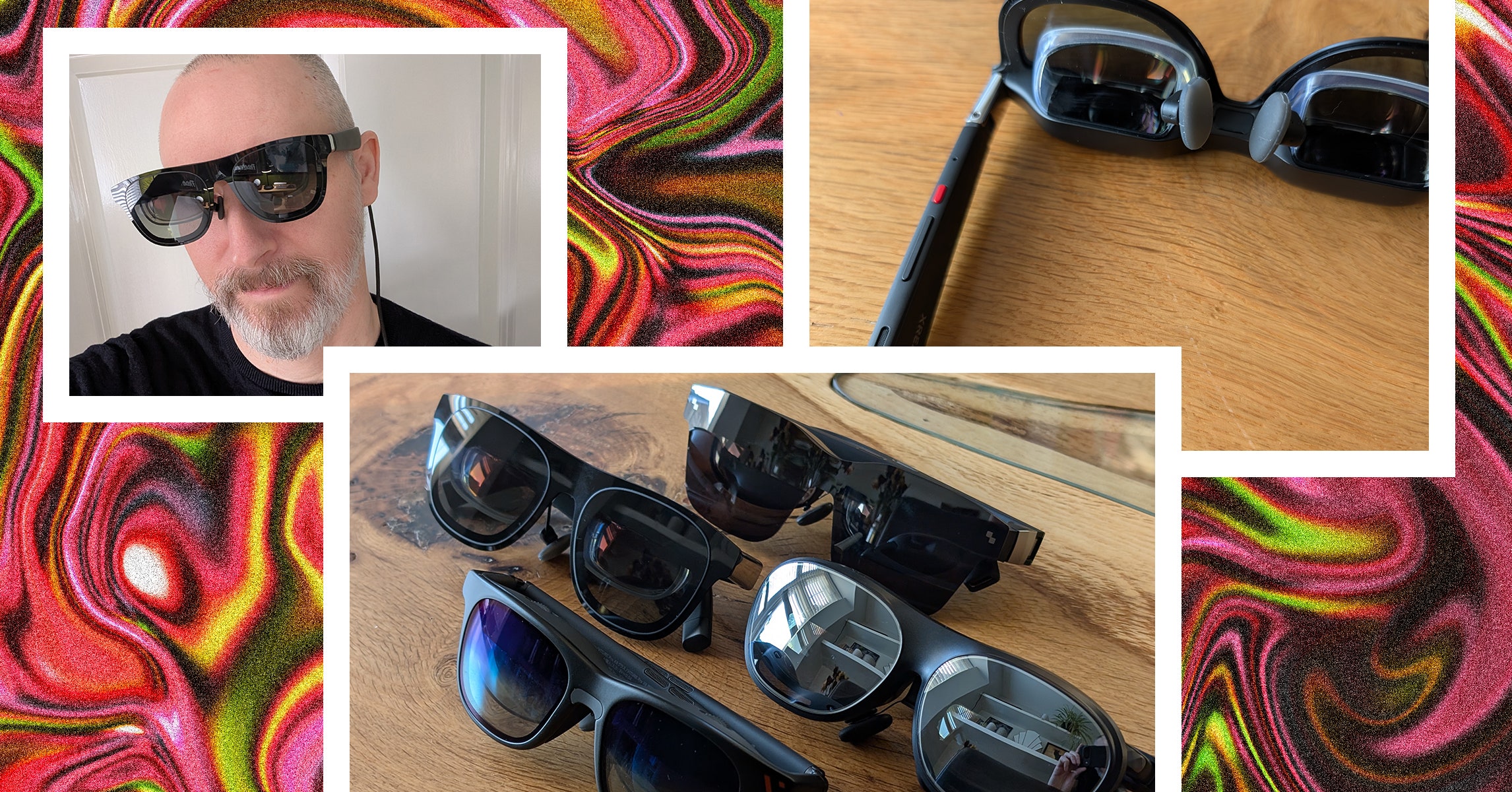Other smart glasses we’ve tested
We’ve tested several more pairs of smart glasses – some good and some bad ones.
Rokid Max 2 Glasses for $ 529: Spider-Man-Still Lesses give these pleasant smart glasses a little character, though they won’t be to everyone’s taste. They project a 215 -inch screen (1,080p, 120 Hz, 600 nits, 50 -degree FOV) and boast diopter discs for focus adjustments, but I struggled to eliminate blur around edges -of plastic blackout shield. I also tried Rokid Station 2 ($ 299), which adds an Android TV interface to access to entertainment apps, but also a pointing field and air mouse for lighter control. The original Rokid Station ($ 139) is a more basic portable Android -TV.
Even realities G1 for $ 599: The smooth realities G1 -smart glasses (6/10, wired review) are perhaps the closest smart glasses with a projected skin that could pass to regular glasses, but they do not have cameras or speakers. The wired reviewer Chris Haslam praised them as smart glasses you want to wear with a hugely impressive skin projector showing crispy, green digital text (640 x 200 pixels). They give messages and boast AI help for turn-by-turn navigation and audio language translation, but none of them work perfectly and the confused driven AI-Service can be slow to respond to queries.
Rayneo Air 2s for $ 400: TCL-owned Rayneo has a lot of models, and although the Air 2s glasses are cheaper than our other virtual screen selection, I found them inferior in design, fit and comfort. They offer a virtual screen in 201-inch (1,080p, 120 Hz, 600 NITs), but it’s blurred around the edges. Rayneos software required for 3 DOF is very buggy and unpolished. The 2s are only slightly better than the older TCL Rayneo Air 2 XR glasses (5/10, cable review) with improved sound, brightness and adjustability, but they suffer from the same failures.
Amazon Echo Frames for $ 300: The Amazon Echo frames (3/10, wired review) are a little old now, but you can still buy them. Sin they don’t do much. They act like sunglasses, filter blue light and are IPX4 classified. Technically, they have a speaker and microphone in each temple, and you can use them to inquire or command Alexa as you would with a smart speaker, but there are no cameras here, making them far less skilled than the similar prices Ray – Ban Meta -Glasses.
LUCYD 2.0 Bluetooth sunglasses for $ 149: LUCYD 2.0 Bluetooth -Sols (7/10, wired review) resembles very echo frames with a choice of frames and lentils. They connect to your phone and act as a Bluetooth headset, with speakers and microphones in the temples so you can listen to music, get audio guides and ask your AI voting assistant.
